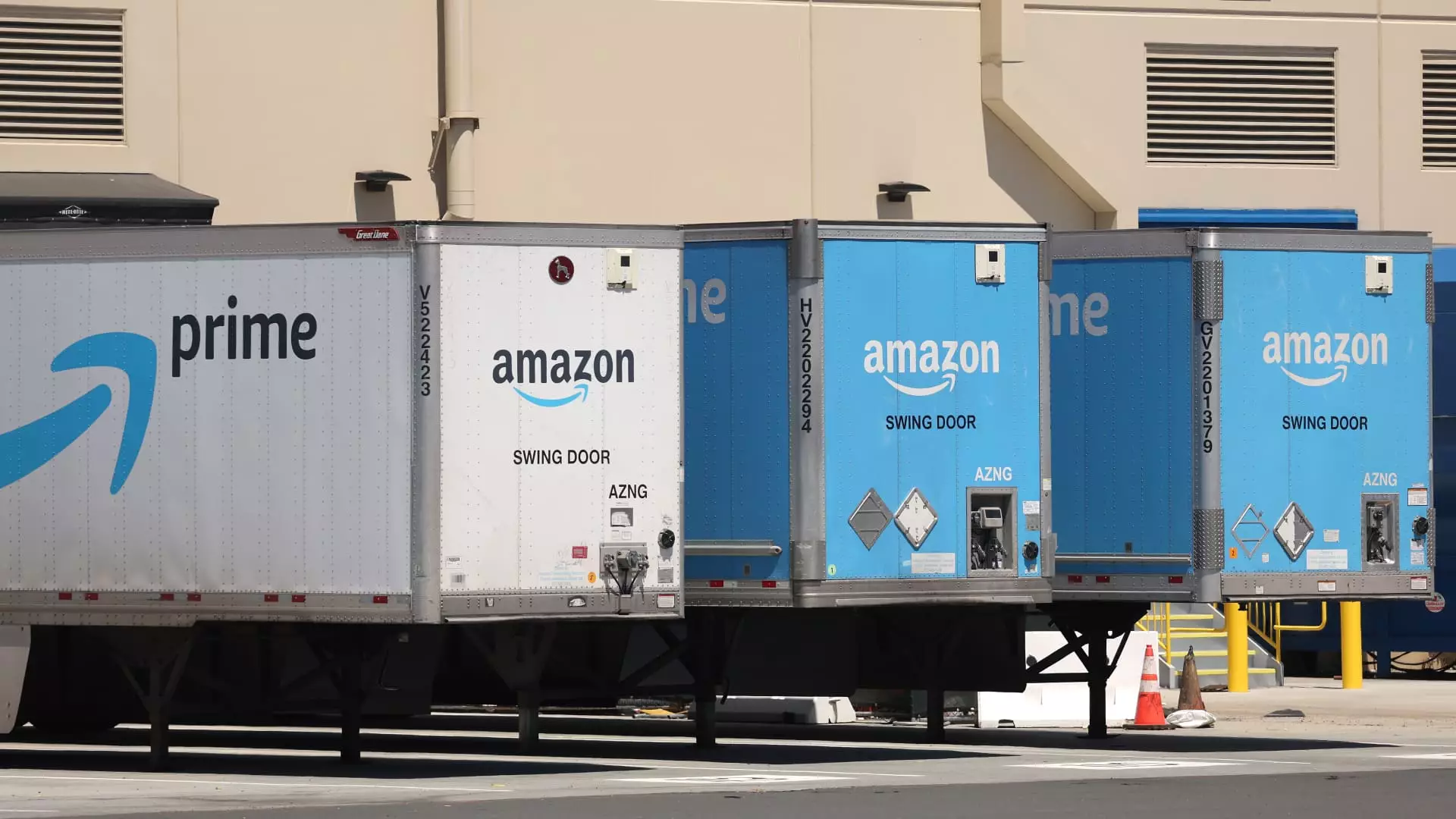In a staggering blow to the seemingly impenetrable fortress that is Amazon, federal authorities have revealed an organized crime operation that managed to siphon off over $83 million worth of merchandise from the retail behemoth. The audacity of this Armenian crime ring, which masqueraded as legitimate truck drivers, exposes the vulnerabilities that lurk within today’s expansive e-commerce frameworks. While the crime itself is shocking, the ramifications stretch beyond mere monetary loss; they ripple through the entire agricultural, logistic, and retail sectors.
As businesses scramble to protect their assets in a landscape riddled with deceit, one can’t help but question the efficacy of current security measures. If a multi-billion dollar entity like Amazon can be so easily infiltrated, what safeguards exist for smaller merchants or individual entrepreneurs? This incident exemplifies a critical flaw in our digital commerce ecosystem, raising pressing concerns about theft that every consumer should now acknowledge.
The Scope of the Scheme
The Department of Justice’s allegations reveal a methodical operation, carried out by at least four individuals linked to the crime ring through a web of faux transportation companies. With names such as AK Transportation and Belman Transport, these entities profited from an elaborate scheme that diverted truckloads of consumer goods — smart TVs, kitchen appliances, and fitness equipment among them — intended for Amazon’s warehouses. Rather than simply delivering these essentials to waiting warehouses, these so-called transporters engaged in a calculated ploy that saw them pilfer merchandise and either resell the items or distribute them to associates.
This modus operandi poses a pressing question: Are Amazon’s protocols robust enough to manage the inherent risks in its logistics operations? With incurred losses topping a chilling $1 billion annually in cargo theft across various sectors, this isn’t merely an Amazon problem; it’s an industry-wide crisis that demands immediate and strategic action. The vulnerability highlighted here is not just an operational failure; it signals a larger systemic issue that can only be remedied through enhanced regulatory measures.
The Pitfalls of Accountability
Amazon’s active response to countering cargo theft — even suspending numerous third-party sellers accused of dealing in stolen goods — indicates an awareness of the gravity of the situation. However, the troubling aspect is the ambiguity that often surrounds such suspensions. Many of these third-party merchants claim they are unwitting victims in a broader conspiracy that places their livelihoods under existential threat. This raises a significant ethical dilemma in the e-commerce arena: How can a balance be struck between protecting the company’s integrity and ensuring fair treatment of sellers who may be inadvertently mixed up in these nefarious schemes?
As we disassemble the classic “seller-friendly” model that Amazon promotes, it becomes clear that we must critically analyze how the platform governs its marketplace. The fine line between eliminating fraud and penalizing innocent parties needs urgent recalibration.
Implications for Regulatory Frameworks
This colossal theft strikes at the core of regulatory practices governing e-commerce logistics. Are current federal and state regulations on transport and delivery sufficient in clamping down on sophisticated criminal activities? This incident should ignite dialogue on enhancing not just industry regulations, but criminal penalties that act as genuine deterrents against organized retail crime.
Moreover, as courts begin the process of addressing the thirteen defendants linked to this operation, one must ponder how our justice system can effectively punish such intricate criminal networks. Shouldn’t our legal framework advance in tandem with technological and procedural developments in organized crime? This incident signifies the alarming need for a revitalized approach to combatting such crime in the 21st century.
What this colossal cargo theft illustrates is not just a glaring error in Amazon’s operational strategy but a broader crisis within e-commerce security and accountability. The urgent call to action is clear: we require enhanced scrutiny, comprehensive regulatory frameworks, and a commitment from both corporate entities and lawmakers to address vulnerabilities that compromise the integrity of our digital marketplaces. As we move forward, engaging in proactive measures is imperative. Only then can we hope to mitigate the pervasive threat of organized crime in the e-commerce sector.

